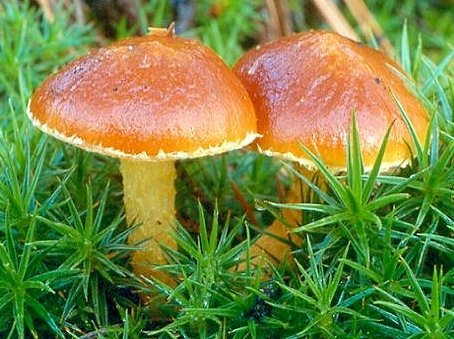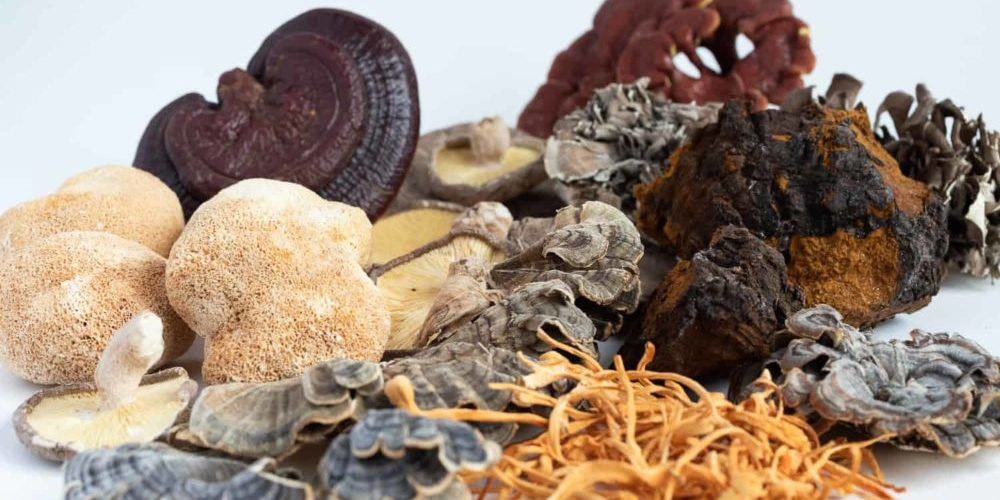Basionym
Agaricus spumosus Fr.
Synonyms
Dryophila spumosa (Fr.) Quél.
Flammula spumosa (Fr.) P. Kumm.
Pholiota graveolens sensu P.D. Orton
Pholiotina spumosa (Fr.) Singer
Gymnopilus spumosus (Fr.) Murrill
Description
Cap: 24-53 mm in diameter, convex to applanate, subviscid; orange brown on disc and yellowish at the margin; context sulfur yellow, fleshy.
Gills: adnate but with decurrent tooth, yellowish; rather close.
Stem: 26-67 × 2-7 mm, cylindrical and slightly expanded at base, hollow, brown at base but clearing to yellowish towards the apex. Partial veil not forming an annulus, but leaving velar remnants at the pileus margin, especially in young basidiomes.
Spore print: tobacco brown.
Spores: 6.5-9 × 4-5 μm, ellipsoid; smooth and moderately thick-walled, with a small, not conspicuous germ-pore, brown on light microscope. Further information on the microscopic features can be found in Cortez and Coelho (2003).
Bioactive compounds
Three interesting compounds were isolated from the fruiting bodies of Pholiota spumosa, including fasciculol E (a lanostane triterpenoid conjugated to a depsipeptide unit), putrescine-1,4-dicinnamamide(a phenylpropanoid derivative), and the novel compound (E)-2,3-dehydroputrescine-1,4-dicinnamamide (Clericuzio et al., 2004). Additionally, (R)-2-hydroxyputrescine dicinnamamide, pholiotic acid {(2R)-2-[(S)-3-hydroxy-3-methylglutaryloxy]putrescine dicinnamamide} and maytenine (N1,N8-dicinnamoyl spermidine) were added to this list (Clericuzio et al., 2007)
Medicinal properties
Antifungal activity
In vitro screening of Pholiota spumosa showed antifungal activity towards Botrytis cinerea (Pujol et al., 1990).
Antitumor activity
Recently, researchers investigated the antitumor activity of putrescine-1,4-dicinnamide, based on the antitumor activity of structurally similar natural polyamines. They showed that the growth of DU-145 cells (a well-characterized androgen-independent human prostate cancer (PCA) cell line), is inhibited by the dicinnamide (Russo et al., 2007). It was additionally shown that maytenine and pholitoic acid also have a similar inhibitory effect (Clericuzio et al., 2007).
Antitumor effects
Polysaccharides extracted from the mycelial culture of P. spumosa and administered intraperitoneally into white mice at a dosage of 300 mg/kg inhibited the growth of Sarcoma 180 and Ehrlich solid cancers by 70% (Ohtsuka et al., 1973).

My name is Austin Collins.
I've dedicated my life to Mushrooms.
I believe Mushrooms are the best kept secret when it comes to health and well being.
For that reason, I would like to share a company with you that in my opinion makes the best mushroom products on the market.
The company is called Noomadic Herbals, my favorite supplement they make is called "Mushroom Total".
I take their products every day and they have helped me think better and have more energy. Give them a try.
-Austin
Clericuzio M, Piovano M, Chamy MC, Garbarino JA, Milanesio M, Viterbo D, Vidari G, Finzi PV.
Structural characterisation of metabolites from Pholiota spumosa (Basidiomycetes).
Croatica Chemica Acta. 2004 77 (4): 605-11.
Clericuzio M, Tabasso S, Garbarino JA, Piovano M, Cardile V, Russo A, Vidari G.
Non-phenolic dicinnamamides from Pholiota spumosa: isolation, synthesis and antitumour activity.
Eur J Org Chem. 2007 33:5551-9.
Interscience
Cortez VG, Coelho G.
Pholiota spumosa (Fr.) Singer (Strophariaceae, Basidiomycota): First record from Rio Grande Do Sul, Brazil.
BIOCIÊNCIAS. 2003 11(2): 133-6.
PDF here
Ohtsuka S, Ueno S, Yoshikumi C, Hirose F, Ohmura Y, Wada T, Fujii T, Takahashi E.
Polysaccharides having an anticarcinogenic effect and a method of producing them from species of Basidiomycetes.
UK Patent 1331513, 26 September 1973.
Pujol V, Seux V, Villard J.
[Research of antifungal substances secreted by higher fungi in culture]
Ann Pharm Fr. 1990 48(1):17-22. French.
Russo A, Piovano M, Clericuzio M, Lombardo L, Tabasso S, Chamy MC, Vidari G, Cardile V, Vita-Finzi P, Garbarino JA.
Putrescine-1,4-dicinnamide from Pholiota spumosa (Basidiomycetes) inhibits cell growth of human prostate cancer cells.
Phytomedicine. 2007 14(2-3):185-91.


